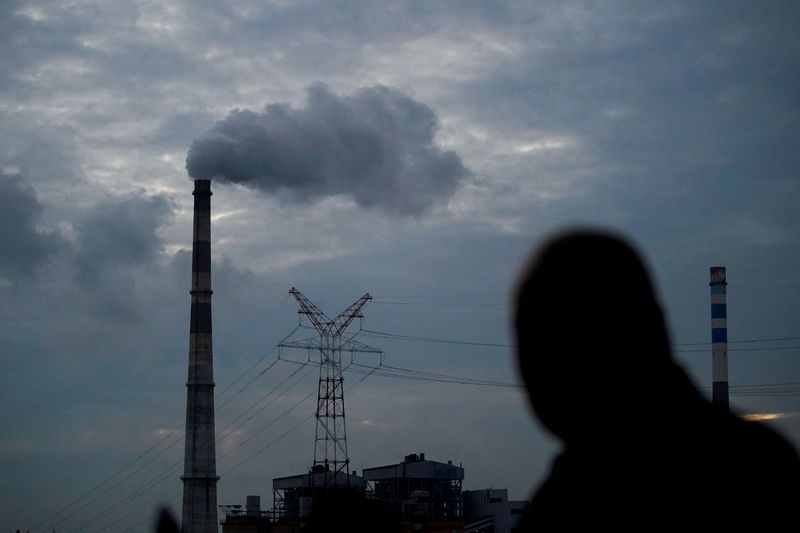By Mark John
(Reuters) - A global failure to curb carbon emissions will lead to rising debt-servicing costs for 59 nations within the next decade, according to a study that simulated the economic impact of climate change on current sovereign credit ratings.
Among them, China, India, the United States and Canada could expect higher costs as their credit scores fall by two notches under a "climate-adjusted" ratings system, the study published in the Management Science journal on Monday found.
"Our results support the idea that deferring green investments will increase costs of borrowing for nations, which will translate into higher costs of corporate debt," researcher Patrycja Klusak said of the study led by the University of East Anglia (UEA) and the University of Cambridge.
Rising debt costs would be just one extra facet of the overall economic damage which climate change is already causing. Insurance giant Allianz (ETR:ALVG) estimates that recent heatwaves will already have shaved 0.6% points off global output this year.
While ratings agencies acknowledge the vulnerability of economies to climate change, they have so far been cautious in quantifying those risks in their ratings exercises because of uncertainties about the likely extent of the damage.
The UEA/Cambridge study trained artificial intelligence models on S&P Global (NYSE:SPGI)'s existing ratings and then combined that with climate economic models and S&P’s own natural disaster risk assessments to create new ratings for various climate scenarios.
A downgrade to 59 sovereigns emerged from a so-called RCP 8.5 scenario of emissions that keep rising. By comparison, 48 sovereigns experienced downgrades between January 2020 and February 2021 during the turmoil of the COVID-19 pandemic.
If the planet manages to stick to the goal of the Paris Climate Agreement, with temperatures held under a two-degree rise, sovereign credit ratings would under the simulation see no impact in the short-term and only limited long-term effects.
A worst-case scenario of high emissions through to the end of the century would on the other hand result in higher global debt-servicing costs, rising up to the hundreds of billions of dollars in current money, the model found.
While developing nations with lower credit scores are seen hit hardest by the physical effects of climate change, nations with the highest ranking credit scores were likely to face more severe downgrades simply because they have furthest to fall.
"There are no winners," Klusak said in an interview.
The findings come as regulators around the world seek to better understand just how much damage to economies and the global financial system to expect from climate change. A European Central Bank paper last year urged greater clarity in how those risks were being built into credit ratings.
S&P Global Ratings has published the environmental, social and governance (ESG) principles used in its credit ratings which include reference to the risk of economic damage from climate change and the costs associated with mitigating it. It declined to comment on the UEA/Cambridge study.

Fitch Ratings pointed to its system of "ESG Relevance Scores" as including factors such as exposure to environment impacts as one component in its assessments.
"These are longstanding and increasingly important rating factors which we continue to weigh in our analysis and publish frequent research and commentary upon," it said in response to a request for comment.
(Writing and reporting by Mark John; Editing by Hugh Lawson)
